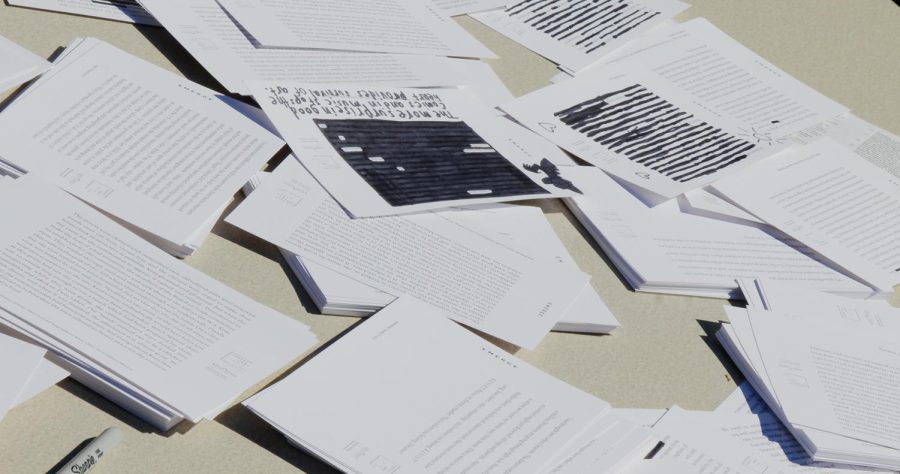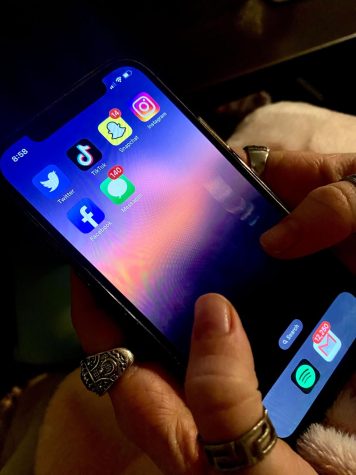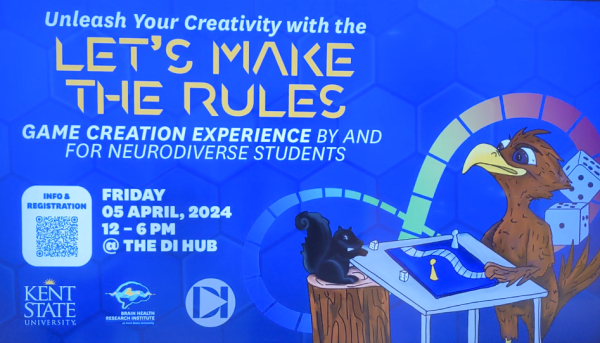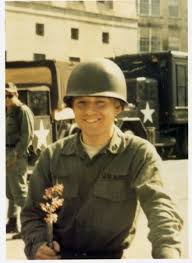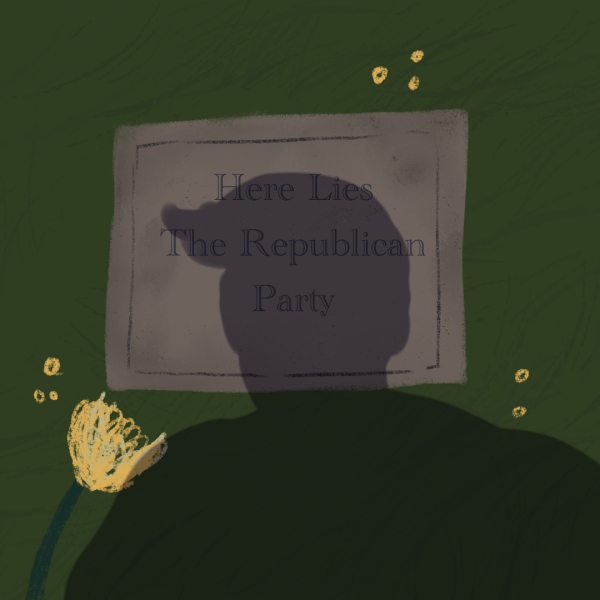Wick Poetry Center unites poets of all ages, tells community tale at Creativity Festival
Examples of black-out poetry sit on a table for an activity hosted by the Wick Poetry during the Kent Creativity Festival in downtown Kent on Saturday, Sept, 30, 2017.
September 30, 2017
As crowds descended on the 2017 Kent Creativity Festival Saturday morning, the Wick Poetry Center was bustling with its own interactive offering to the event.
“Well, this is the second annual Creativity Festival,” said David Hassler, the director of the Wick Poetry Center. “And what we’re doing is creating interactive stations for our Traveling Stanzas project, and encouraging people to come into the poetry park and make some poems through some fun and playful methods.”
Through multiple stations in the Wick Poetry Center’s poetry park, visitors could create their own “blackout poems” either digitally or on paper, decorate them, be filmed holding them for an aggregated Twitter feed and then hang them on the fence surrounding the park.
“We have both analog and digital tools and methods for poem creation. Essentially, we’ve taken this idea of erasure poetry or blackout poetry, which is when you take a primary source text and you cross out words, and the words that remain become your poem,” Hassler said.
Hassler also talked about the app and what they have done with it.
“What we’ve done is we’ve digitized that as an app … so what we have done is taken texts that resonate with Kent and the history of Kent and community and we’ve uploaded them as digital files that you can choose on an iPad and then tap the words, and as you tap a word after reading that text, it becomes more bold and the rest of the text recedes,” Hassler said. “And you, by tapping around, can make choices and choose your own found poem.”
The texts available for participants to experiment with included poems by President Beverly Warren and about topics such as black squirrels.
“I mean if you think of the intimidation of a blank page, right — ‘How do I start to create a poem?’ Erasure poetry gets around that,” said Charles Malone, the program and outreach manager for the Wick Poetry Center. “It gives you a page full of words and then you pull a story out of that, you pull an idea out of that, you pull something out of it. You can spin a text, you could be playful with it, you can intensify it, and all of those things are a lot easier when you’ve got something to start from.”
Previously, the Wick Poetry Center had offered a simpler method of interactive poetry, by ripping pages from thrifted books and pasting them on cards.
“So this year we have our own cards printed, we picked text that we wanted, we picked texts that are all about Kent and Portage county and the history of Kent, so we did something similar but we’ve really refined it this year,” said Regis Coustillac, a senior English major and employee at the Wick Poetry Center.
Those who chose to step into the park for its activities also had the opportunity to participate in a community poem, where they could contribute a line, starting with “Kent is,” and receive a free T-shirt, tote, or poetry card for their effort.
“I think people have a sense of poetry coming out of high school and maybe college, like, ‘It’s so scary, I can’t do it,’ and poetry is for everyone,” said Jessica Jewell, the Wick Poetry Center’s senior academic program director. “It’s for everyday people to tell their stories. And so we want to make it easier for people to write poems so they can see like, ‘Oh yeah, I can do this,’ and so part of it is using this technology that we’re developing to make that possible.”
The event was open from 11 a.m. to 5 p.m., and drew in prospective poets of all ages.
“I think language … shapes the way we perceive the world, and it’s a way that we can connect with each other on a really emotional level,” Malone said.
“And so be it the community poem where you thread different people’s expressions and visions of Kent together and then share it in a space where people can think about it and engage with it on their own terms, or if it’s just playing with the erasure poems, the blackout poems, to get you thinking about language, it just creates a lot of really more in-depth ways of engaging with the world, and that’s what we really try to do is give people opportunities to engage with poetry and language and self-expression. And I think the different things we’re trying to offer today are good examples of that.”
Cameron Gorman is the humanities reporter. Contact her at [email protected].


